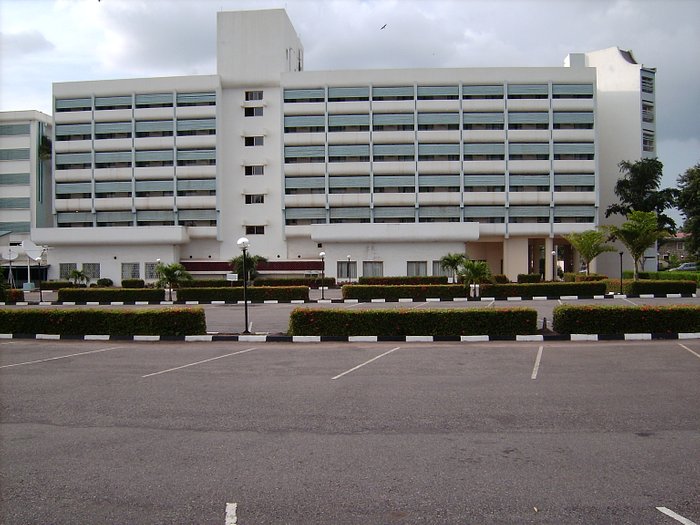Falsified medical certificate: How Eucharia Okoro is changing the narrative by combating corruption in her department
Public service in Nigeria is riddled with elevated cases of corruption; from malfeasance, bribery, falsification, the practices are far reaching. It is generally believed in Nigeria that government workers are the most corrupt and finding a stickler for discipline, integrity and diligence would always be an exception. One of these exceptions is Eucharia Okoro.
Eucharia, 60, is a medical records officer in Kubwa General Hospital Abuja. The widowed mother of seven hails from Ehime-Mbano Local Government Area of Imo State. In her years of service, she has vowed to lead by example and uphold the highest standards of integrity and professionalism. She has also ensured strict monitoring procedures to ensure all medical certificates issued in her department are genuine and accurate.

“There was an incident, where a woman approached me, requesting a falsified medical report to justify her absence from work for a year. My investigation revealed that the woman had given birth at the hospital, but did not have any chronic illness warranting a year-long absence. I stood firm and refused to forge the report for her,” she narrated.
In Nigeria, the issue of falsified medical certificates to justify absences from work not only undermines the credibility of the healthcare system but also invites serious disciplinary actions against the individuals involved.
The consequences of this widespread practice are far-reaching, not only does it create a culture of dishonesty in the workplace, but it also places strain on the healthcare system by clogging up already stretched resources with unnecessary appointments and treatments. These acts can be likened to forgery, false documents, among other related offenses and the specific laws that might be invoked include the Criminal Code which is for southern Nigeria, or Penal Code which is for Northern Nigeria.
Over the years, several instances where healthcare officials and employees have participated in or facilitated the issuance of fake medical reports have been uncovered. For example, this Premium Times investigation highlighted a systemic issue within Nigeria’s health sector where corrupt health officials were found to be involved in the issuance of falsified medical reports.
This reality made Eucharia’s efforts noteworthy and remarkable. Her story is one of perseverance and determination as she had moved from relative obscurity to national recognition.
When Eucharia Okoro started work as a security personnel at the Kubwa General Hospital Abuja in 1994, all she had was her diligence, discipline and tenacity; these tripartite attributes are a rarity in the Nigerian public service system but they would be the bedrock of her career.
From her duty post, she learnt and understudied the medical officers, ensuring she strictly followed the operational rules and the working principles at the hospital. Her zeal to learn and determination to succeed endeared her to the superior medical officers. When the security department was dissolved due to restructuring and many of her colleagues were let go, Eucharia was retained on the payroll.
“When the Director called me, I was so anxious and could not predict what the outcome of my meeting with him would be. I was in awe when she told me, you are to resume as a medical records officer and not a security officer. Congratulations on your new post,” she recalled.
In this new position, Eucharia found her true calling. Despite the daunting task, she placed a high value on treating others as she would like to be treated. She approached her job with utmost professionalism and never shied away from challenges that came with it. Even though she was relatively new to her position in medical records, she quickly gained a reputation for her integrity and conduct.
On one occasion, during her leave, a patient’s file went missing, causing distress for the patient and difficulty for the doctors in diagnosing him without his medical history. Upon her return, Eucharia took it upon herself to search the archives and she eventually found the document. This unmatched diligence cemented her place in the hospital as the management felt compensated for their decision to elevate her.
Eucharia’s resourcefulness and determination to do the right thing was unprecedented and as a result, she would navigate the work of maintaining patient files, keeping records and making sure patients’ files get to doctors on time with relative ease. Although, the stress would later reduce when the medical records department changed from analog to digital record-keeping.
“When I was transferred to the Medical Records Department, I lacked professional training, which led me to pursue a certification in Health Information Technology at Nasarawa State Health Technology, Keffi. It was quite challenging to juggle between Keffi and Abuja. But in the end, it was worth it. I became fully certified after completing my program. I will be retiring from office next year and I hope to leave a legacy that will be remembered,” she stated.
Regardless of these challenges she faced, Eucharia was able to maintain a good rapport with her colleagues who were affected by the restructuring. She felt concerned and reached out to them when the need arose. She does not look down on her colleagues. She does everything possible to make sure their relationship is well nurtured.
“I have never received a query at my job, as I always give my best. My superiors know and hold me in high regard because I have proven myself over time,” she said.
Her move to combat corruption in medical certificates was met with resistance and backlash from some of her colleagues who were complicit in the practice. She uncovered how some of her colleagues refused to remit revenue made during the night shift to the hospital purse.
“I would not condone such behavior of refusing to remit revenue to the hospital purse. On many occasions, I have warned my colleagues against refusing to remit money to the coffer of the hospital. One of my colleagues got angry and tagged me as her enemy,” she retorted.
Eucharia’s story epitomizes perseverance, integrity, and an unbridled commitment to her job. Her journey from security personnel to medical records officer is a pointer to her ability to adapt in tough positions. She had started at the bottom, and through hard work, had risen to the top
As a medical records officer, Eucharia’s diligence has inspired trust and respect among her colleagues. Her commitment to transparency and fairness has not only improved her working environment but also instilled a sense of unity within her team. These noble actions serve as a reminder that ethical conduct and accountability are essential components of effective leadership in public service.
This report is championed by Accountability Lab Nigeria, sponsored by The John D. and Catherine D. MacArthur Foundation and Luminate






